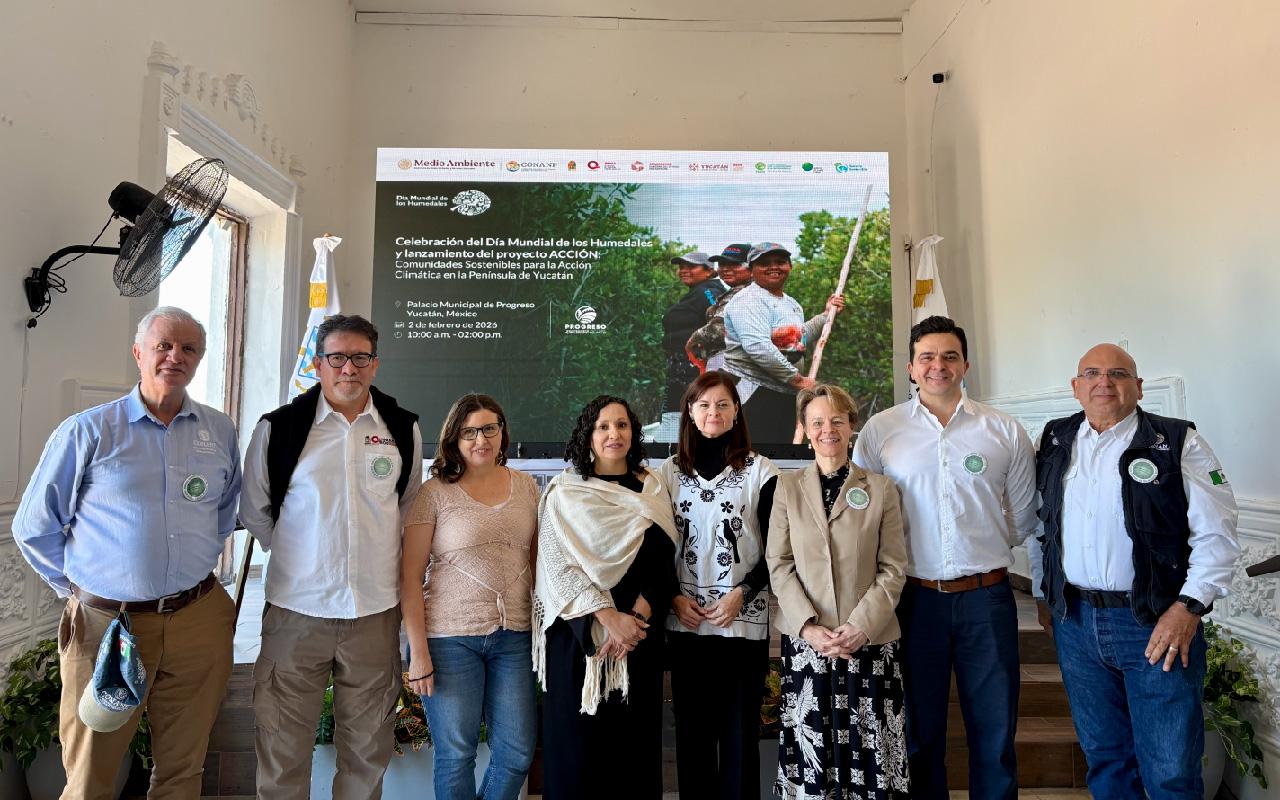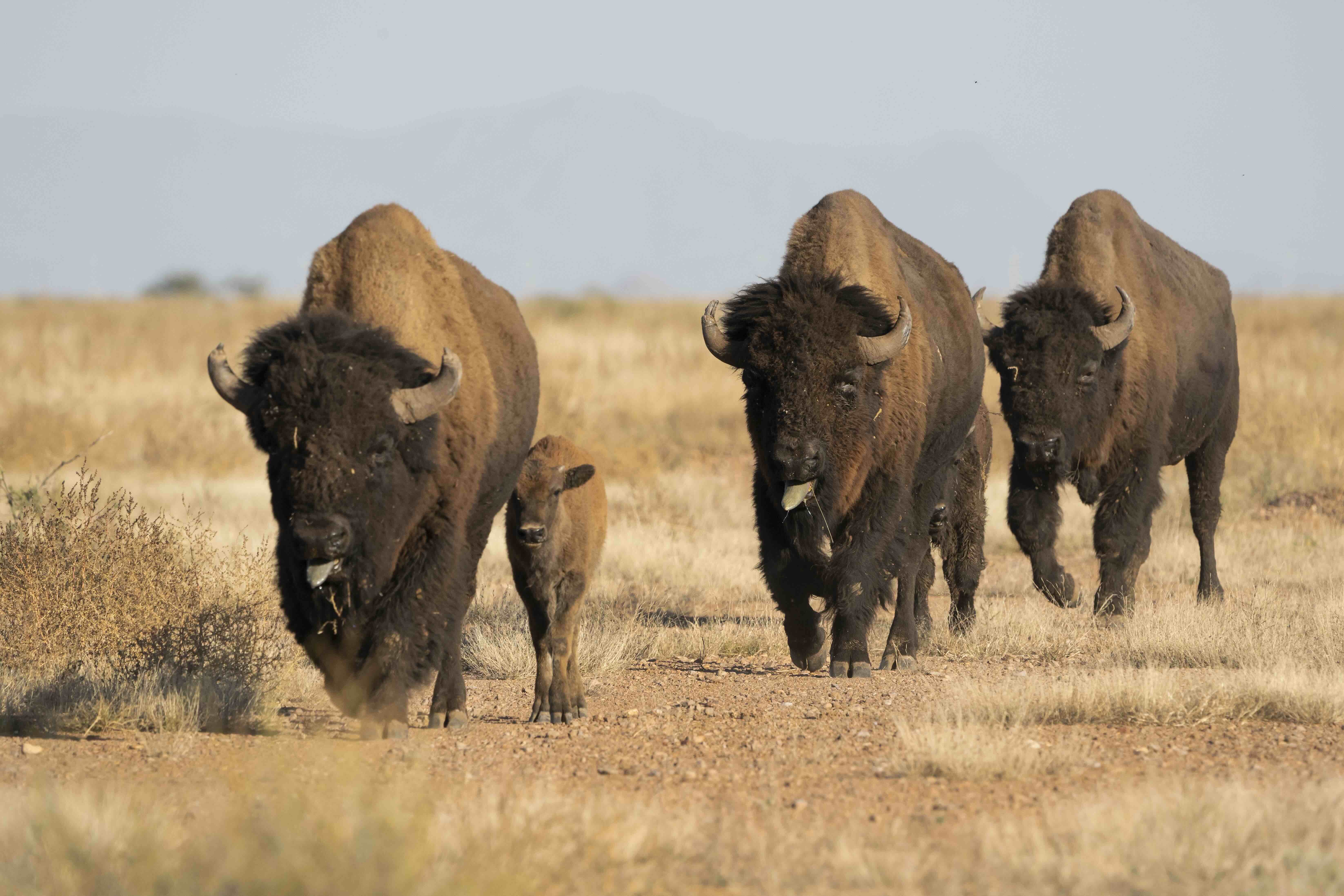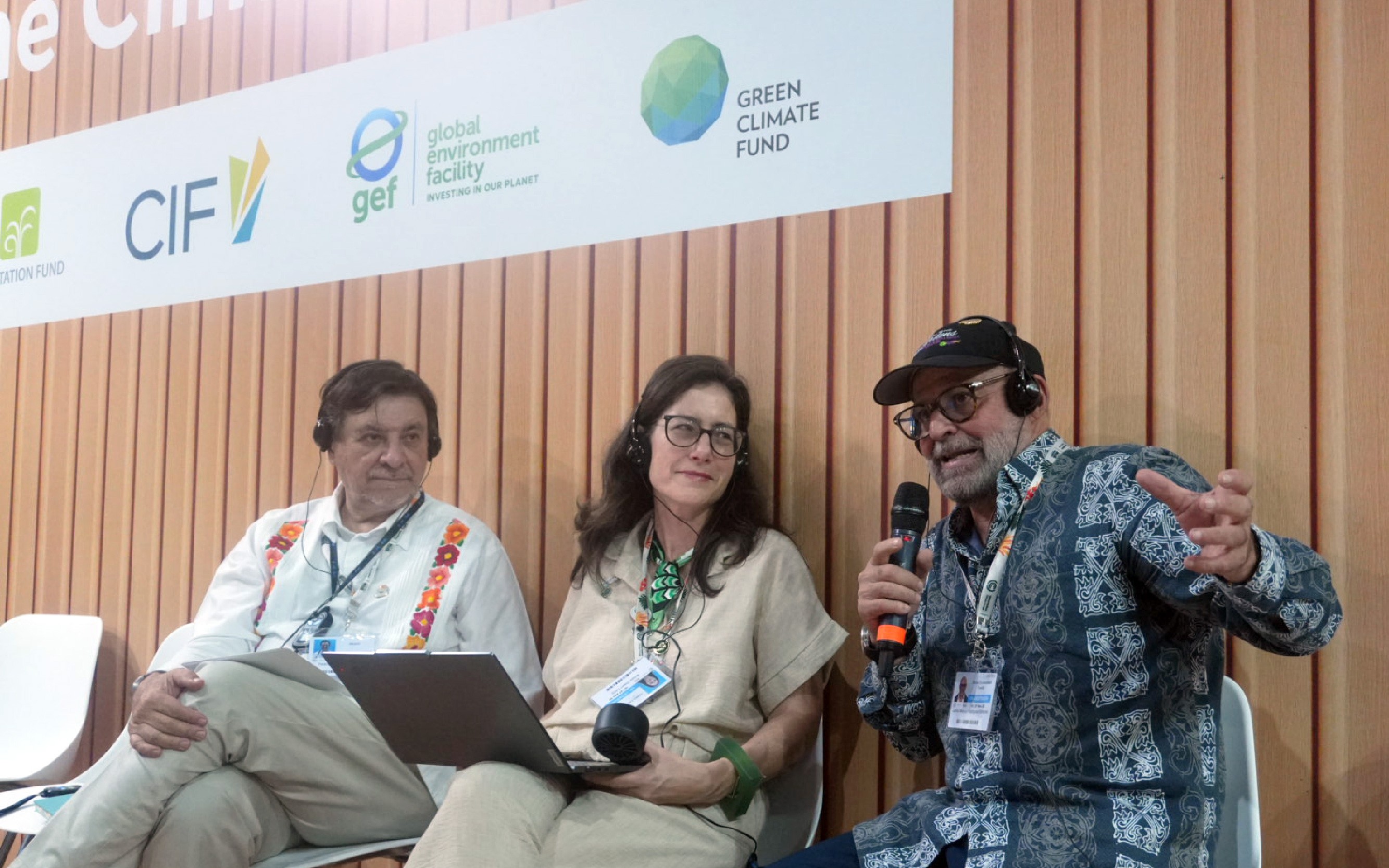Initiatives

Mexico celebrates the launch of MEx30x30 at COP16, a key project for biodiversity conservation
- MEx30x30 lays the foundation for a historic effort to ensure the conservation of 30% of the Mexican territory by 2030
- This project aims to secure sustainable management of Mexico's 232 protected areas, in line with the 48 goals established in the Mexico's National Biodiversity Strategy and Action Plan (ENBioMex, acronym in Spanish)
- The Global Biodiversity Framework Fund (GBFF) and the United States Agency for International Development (USAID) join efforts to achieve Mexico's 30x30 goal
Cali, Colombia, October 30, 2024. - The Kunming-Montreal Global Biodiversity Framework (GBF), agreed upon in 2022, has been signed by 196 countries, and this week, the sixteenth meeting of the Conference of the Parties to the Convention on Biological Diversity (COP16), held in Cali, Colombia, is pushing forward toward the established goals. Among several commitments, the goal to protect 30% of the planet by 2030 – the 30x30 target – stands out. These highly relevant actions address the need to conserve forests, jungles, oceans, wetlands, and all ecosystems that provide environmental services such as water, food, oxygen, and protection against natural disasters. Immediate action becomes essential as scientists document that vertebrate, bird, and coral populations are declining.
In 2023, the Global Environment Facility (GEF) launched the Global Biodiversity Framework Fund, which has selected the first four projects to support. One of these, MEx30x30, is an initiative of the National Commission of Natural Protected Areas (CONANP, acronym in Spanish), with implementation support from Conservation International (CI) and execution by the Mexican Fund for the Conservation of Nature (FMCN, acronym in Spanish). MEx30x30 aims to effectively manage Mexico's 232 federal protected areas, which safeguard 14% of terrestrial and 25% of marine biodiversity, to have sufficient resources to secure the country's natural and cultural treasures for future generations by 2030. This will be achieved in collaboration with local communities and Indigenous Peoples, who play a key role in protecting Mexico's biodiversity. Additionally, the project seeks to make substantial progress toward robust management of 30% of the country under conservation by 2030.
During COP16, Mexico's Government celebrated the launch of MEx30x30: Conserving Mexico's biodiversity through communities and their protected areas, aligned with the 48 goals established in the National Biodiversity Strategy. The presentation of MEx30x30 featured participation from Carlos Manuel Rodríguez, CEO and Chairperson of the GEF; Alicia Bárcena, Secretary of Environment and Natural Resources (SEMARNAT, acronym in Spanish) of Mexico; Greg Howell, Senior Deputy Assistant Administrator in USAID's Bureau for Latin America and the Caribbean; Patricia Zurita, Chief Conservation Strategy Officer at Conservation International (CI); and Renée González, Executive Director of FMCN.
Carlos Manuel Rodríguez from the GEF highlighted the progress leading to the approval of the first projects financed by the GBFF, including MEx30x30, one of the first to receive funding: “MEx30x30 was approved by the GBFF less than one year after it was launched and shows the efficiency of the new fund. The GEF welcomes the conservationist commitment and the speed of access to resources by the Government of Mexico and its local partners in the protection of 30% of the marine and terrestrial territory. Mexico is an example of political and sectoral commitment to comply with global agreements to protect and sustainably use nature. As a megadiverse country with a comprehensive system of protected areas, from the federal government to the community level, Mexico leads international conservation efforts and the GEF is proud to work together and generate global environmental benefits," said Carlos Manuel Rodríguez, CEO and Chairperson of the GEF.
Alicia Bárcena, head of SEMARNAT, shared Mexico's achievements in conserving protected areas and her strategic vision to reach the 30x30 goal: "The MEx30x30 project, in addition to providing an endowment fund for five protected areas and one Area Voluntarily Destined for Conservation (ADVC, acronym in Spanish), will strengthen CONANP's institutional capacity to efficiently manage federal protected areas and help close their financial gap by 2030,” she emphasized.
“Protected areas in Mexico represent only 14% of terrestrial territory and 25% of marine territory. We need to collaborate with states and municipalities to achieve the 30x30 goals. We are implementing other effective conservation measures, such as fishing refuge zones. The ecological and environmental policy proposed by President Claudia Sheinbaum is humanistic, focused on redirecting growth toward sustainability and equity. The challenge is immense, but the biodiversity that needs to be conserved is exceptional,” she concluded.
Likewise, Greg Howell announced USAID's first contribution to MEx30x30 through the Kalan project: “In the Mayan language, Kalan means to care and conserve. Our countries share an ongoing commitment to protect their national treasures. Together, we honor this by preserving biodiversity to create a future where our protected areas thrive. Kalan aims to serve as a catalyst for joint work to fulfill our shared vision of Mexico 30x30”.
Patricia Zurita of CI stated, “In supporting MEx30x30, we recognize that true conservation success must integrate the expertise, knowledge, and leadership of local communities and Indigenous Peoples who are the frontline stewards of our planet's biodiversity. Together, through Mexico's ambitious commitment to protect 30% of its territory by 2030, we are forging a path that not only preserves the natural treasures of today but also builds a sustainable foundation for generations to come. This is not just Mexico's mission; it's a blueprint for global biodiversity protection”.
Renée González, Executive Director of FMCN, highlighted that “MEx30x30 builds on 27 years of experience from the Protected Areas Fund (FANP, acronym in Spanish), which combines public and private funds for the effective management of protected areas. Independent studies have shown that protected areas supported by public and FANP reduced deforestation by at least 23% in the first ten years”.
With over 95 million hectares under protection and a conservation model that places communities at the center, MEx30x30 drives the international and national efforts necessary to conserve Mexico's nature and culture. Its presentation at COP16 reaffirms Mexico's commitment to biodiversity protection and sustainable development for future generations.


